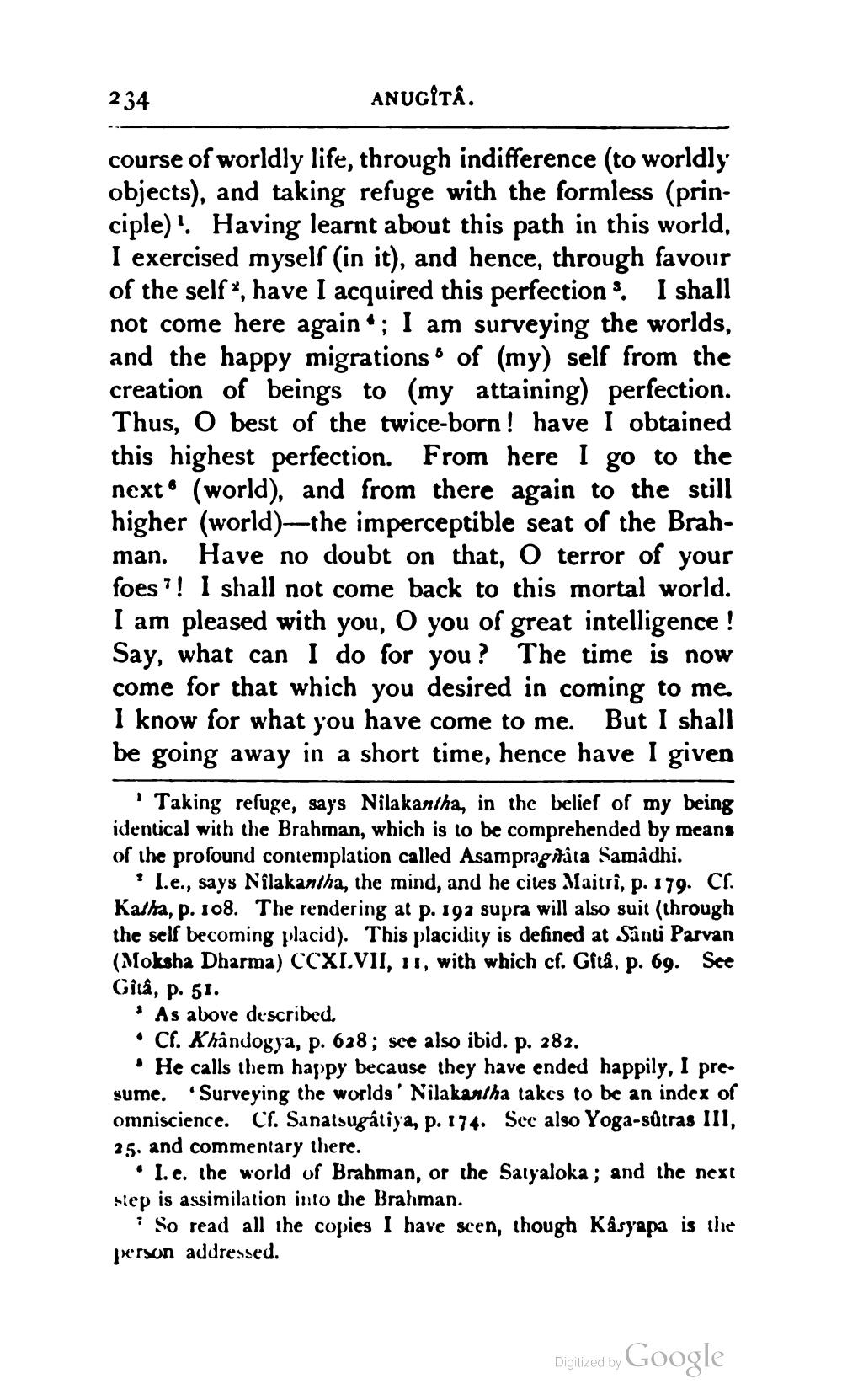________________
234
ANUGÍTÂ.
course of worldly life, through indifference (to worldly objects), and taking refuge with the formless (principle) ? Having learnt about this path in this world, I exercised myself (in it), and hence, through favour of the self“, have I acquired this perfections. I shall not come here again.; I am surveying the worlds, and the happy migrations o of (my) self from the creation of beings to (my attaining) perfection. Thus, O best of the twice-born! have I obtained this highest perfection. From here I go to the next (world), and from there again to the still higher (world)--the imperceptible seat of the Brahman. Have no doubt on that, O terror of your foes ?! I shall not come back to this mortal world. I am pleased with you, O you of great intelligence ! Say, what can I do for you? The time is now come for that which you desired in coming to me. I know for what you have come to me. But I shall be going away in a short time, hence have I given
Taking resuge, says Nilakantha, in the belief of my being identical with the Brahman, which is to be comprehended by means of the profound contemplation called Asampragitâta Samadhi.
'l.e., says Nilakantha, the mind, and he cites Maitri, p. 179. Cr. Kaiha, p. 108. The rendering at p. 192 supra will also suit (through the self becoming placid). This placidity is defined at Sänu Parvan (Moksha Dharma) CCXI.VII, 11, with which cf. Gitá, p. 69. See Gita, p. 51.
. As above described. • Cl. Khandogya, p. 628; see also ibid. p. 282.
• He calls them happy because they have ended happily, I presume. "Surveying the worlds' Nilakantha takes to be an index of omniscience. Cr. Sanatsugaliya, p. 174. See also Yoga-sūtras III, 25. and commentary there.
• I.e. the world of Brahman, or the Salyaloka; and the next slep is assimilation into the Brahman.
. So read all the copies I have seen, though Kasyapa is the person addressed.
Digitized by Google




